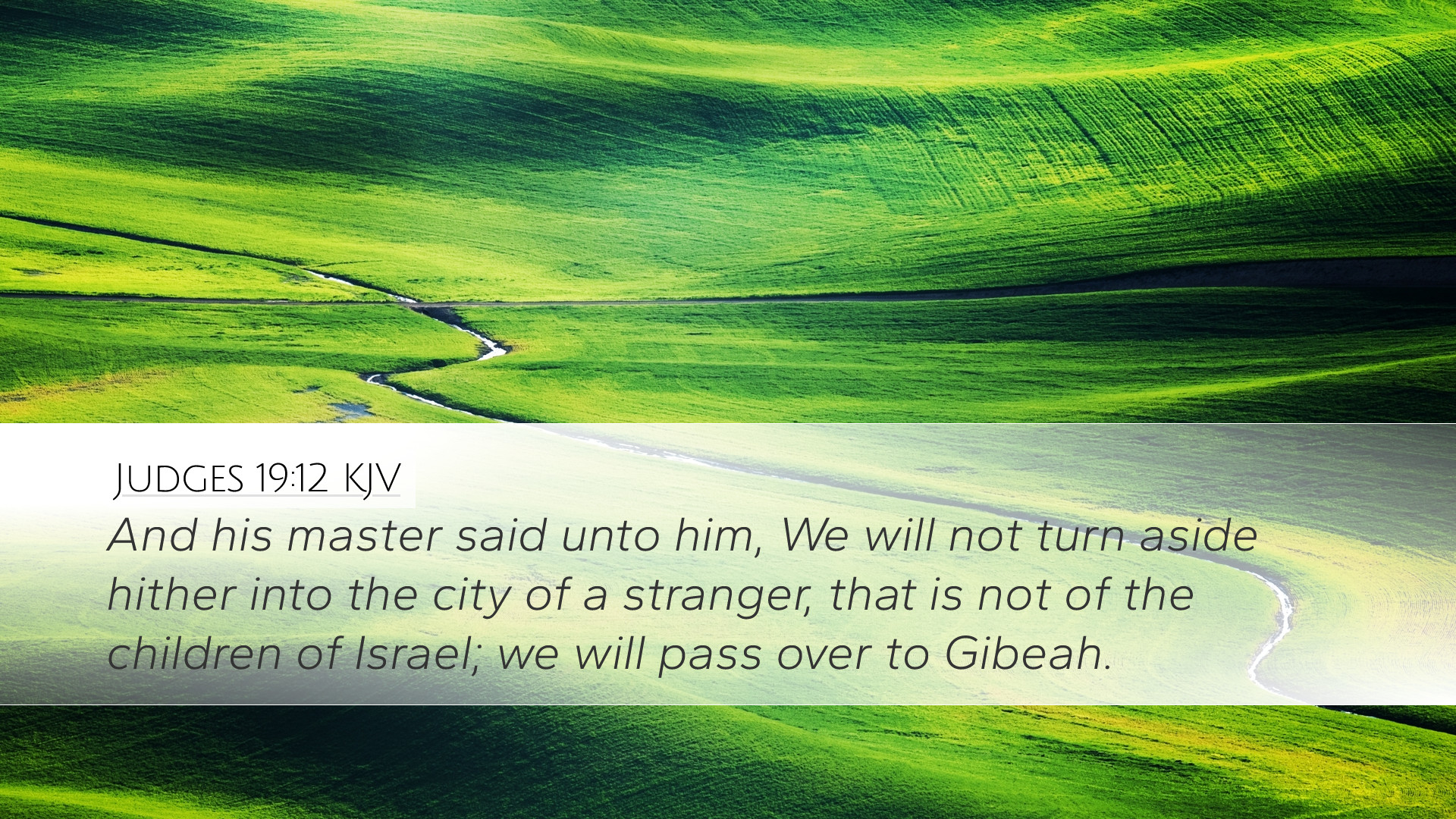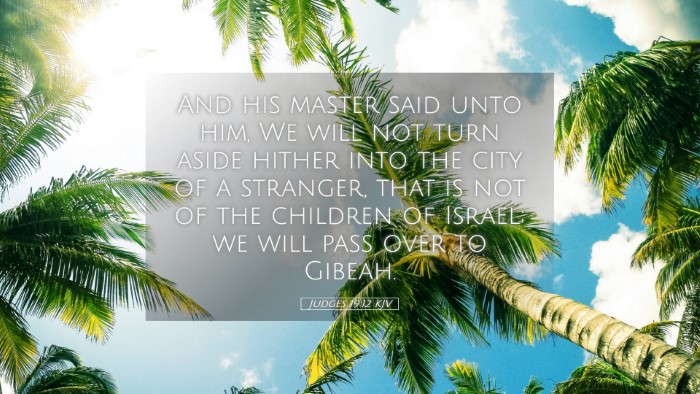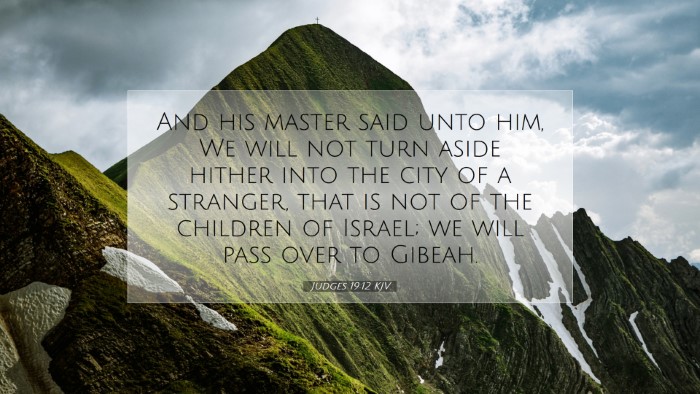Commentary on Judges 19:12
Judges 19:12 reads: “And his master said unto him, We will not turn aside hither into the city of a stranger, that is not of the children of Israel; but we will pass over to Gibeah.”
This verse marks a pivotal moment in the narrative of Judges, illustrating themes of hospitality, societal breakdown, and the moral condition of Israel during the time of the Judges.
Contextual Background
The Book of Judges presents a tumultuous period in Israel’s history, characterized by a cycle of apostasy, oppression, and deliverance. The events in Chapter 19 set the stage for a horrific account that culminates in civil strife.
-
Social Context: It is essential to recognize that the Israelites had a cultural expectation of hospitality, particularly towards fellow Israelites, which would be deeply ingrained in their societal norms.
-
Geographical Movement: The Levite and his concubine are traveling to Gibeah, a city in the territory of Benjamin, which is indicative of their search for refuge among Israelites rather than strangers.
Analysis of Key Phrases
The master’s refusal to enter a city of strangers encapsulates significant theological and moral implications.
-
“City of a stranger”: This phrase highlights the importance of community and kinship among the Israelites. The Levite’s avoidance of cities not aligned with Israelite identity emphasizes an intentionality behind his choices.
-
“We will pass over to Gibeah”: The decision to continue towards Gibeah reflects a misplaced trust in the safety of Israelite communities. This misguided confidence leads to disastrous consequences down the line, illustrating a deep sense of irony within the narrative.
Theological Implications
This verse begins to unfold the theme of the absence of divine guidance among the Israelites. It sets a tone of moral decay, where the expected benefits of being among God’s people are betrayed by the actions of those within Israel.
-
Moral Integrity: The immediate setting foreshadows severe judgments against Gibeah, paralleling themes found in Sodom and Gomorrah. The choice to avoid strangers suggests a preference for familiarity but ironically leads to far worse treatment.
-
Human Agency: The Levite’s decision is driven by personal judgment rather than divine directive, which aligns with the overarching theme that “everyone did what was right in his own eyes” (Judges 21:25).
Matthew Henry’s Insight
Matthew Henry, in his commentary, emphasizes the significance of the Levite’s decision to avoid the city of strangers. He notes that this decision illustrates a lack of awareness regarding the spiritual condition of fellow Israelites. The ironic fate that befalls them underscores a tragic element of the narrative.
Albert Barnes’ Observations
Albert Barnes provides a critical examination of the hospitality ethos prevalent amongst the Israelites. He describes the Levite’s choice to reach Gibeah as an insightful reflection of the day’s expected social constructs—where kinship was often preferred over broader societal ethics. His commentary warns of the consequences when society fails to uphold these obligations.
Adam Clarke’s Analysis
Adam Clarke expands upon the nature of the terms “stranger” and “children of Israel,” suggesting a longing for belonging that drives the Levite’s choices. Clarke views the Levite as a tragic figure, whose initial discretion leads him into a deceptive notion of safety rooted in social familiarity rather than divine protection.
Concluding Thoughts
Judges 19:12 serves as a sobering reminder of the fragility of human moral standards. It is a call for introspection and vigilance concerning the nature of connections and allegiances made by those who claim fidelity to God. The Levite's experiences foreshadow the grave events that are to unfold and challenge readers to reflect on their relationships with both God and each other, as well as the dire consequences that arise from failing to live in accordance with divine will and community integrity.


